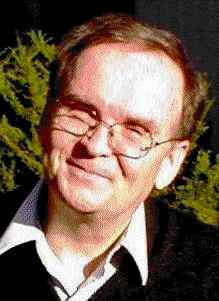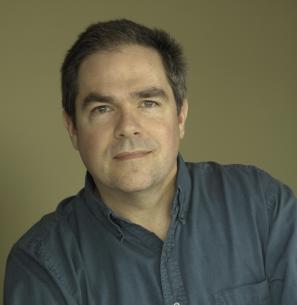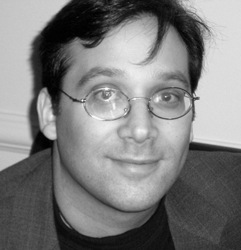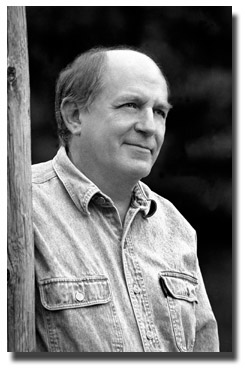Conducted by David DiSalvo. Click on the title for full text.
 Everything We Knew about Human Vision is Wrong: Mark Changizi Tells Us Why
Everything We Knew about Human Vision is Wrong: Mark Changizi Tells Us Why
For theoretical neurobiologist and author Mark Changizi, “why” has always been more interesting than “how.” While many scientists focus on the mechanics of howwe do what we do, his research aims to grasp the ultimate foundations underlyingwhy we think, feel and see as we do. Guided by this philosophy, he has made important discoveries on why we see in color, why we see illusions, why we have forward-facing eyes, why letters are shaped as they are, why the brain is organized as it is, why animals have as many limbs and fingers as they do, and why the dictionary is organized as it is. […]
 Changing Socrates’ Diapers: An Interview with Author Alison Gopnik
Changing Socrates’ Diapers: An Interview with Author Alison Gopnik
At different points in history, baby brains have been described as blank slates, balls of clay, and information sponges—and the debate about which is closer to the mark has smoldered for centuries. Today, the debate is more refined, though no less dynamic, and percolates amidst a commercial sea of products claiming to catalyze genius in […]
 The State of Science Journalism: A Discussion with Science Writer Carl Zimmer
The State of Science Journalism: A Discussion with Science Writer Carl Zimmer
Science journalism is taking it on the chin lately. Major news outlets are curtailing their science coverage, and in some cases closing down science departments altogether. In a rough economy–when the overall future of print media is in question–it seems that science has been deemed expendable. In a sense, this is inexplicable, considering the fact that science […]
 Are We Born Believers or Cultural Receivers? A Discussion with Author and Psychologist Bruce Hood
Are We Born Believers or Cultural Receivers? A Discussion with Author and Psychologist Bruce Hood
Few topics in psychology are gaining more momentum than the origin of religious beliefs. Questions of whether we’re born with neural apparatus that predisposes us to belief, or whether we learn to becomes believers, or some combination of both, are on the minds of researchers from all quarters. Bruce Hood, experimental psychologist at Bristol University, is a groundbreaker […]
 Diagnosis: DREAD – Talking about Epidemics, Panic and the Revenge of the Germs with Philip Alcabes
Diagnosis: DREAD – Talking about Epidemics, Panic and the Revenge of the Germs with Philip Alcabes
It’s a huge understatement to say that panic is part of human nature. We’re all wired to anticipate threats and experience nervous system overdrive when they arrive – our species wouldn’t have made it this far if we didn’t. But what happens when the anticipation itself is enough to trigger heart pounding panic? […]
 Can You Outsmart Your Genes? An Interview with Author Richard Nisbett
Can You Outsmart Your Genes? An Interview with Author Richard Nisbett
While the debate over intelligence rages on many fronts, the battle over the importance of heredity rages loudest. It’s easy to see why. If the camp that argues intelligence is 75 to 85 percent genetically determined is correct, then we’re faced with some tough questions about the role of education. If intelligence is improved very […]
 Psychology for Dummies: An Interview with Authors Laura Smith and Charles Elliott
Psychology for Dummies: An Interview with Authors Laura Smith and Charles Elliott
Depression for Dummies, Overcoming Anxiety for Dummies, Obsessive Compulsive Disorder for Dummies- these are just a few of the titles penned by Dr. Laura Smith and Dr. Charles Elliott, a writing duo with a library of psychology and self-help books between them. Tackling challenging topics with an accessible style is their specialty, and has allowed […]
You, Me and Our Mistakes Make Three: An Interview with Author Joe Hallinan
Making mistakes is as human as breathing. But if that’s true, why are most of us so unwilling to admit it? Maybe that unwillingness is itself one of our many little quirks, “design” flaws leading us to make decisions that in retrospect seem ridiculous, miss plain-as-day details right before our eyes, and comfortably consider ourselves […]
 Why ‘Many’ Might be the Loneliest Number: An Interview with John Cacioppo
Why ‘Many’ Might be the Loneliest Number: An Interview with John Cacioppo
Right now we enjoy more ways to stay connected with people across the globe than at any time in history. What a remarkable irony, then, that “loneliness” is still a topic finding its way into headlines, perhaps now more than ever. How can oceans of distance no longer be an obstacle to communicating, and yet […]
 What is Literary Darwinism? An Interview with Joseph Carroll
What is Literary Darwinism? An Interview with Joseph Carroll
 Attention Under Siege: An Interview with Author Maggie Jackson
Attention Under Siege: An Interview with Author Maggie Jackson
In his masterwork, Flow, psychologist Mihaly Csikszentmihalyi tells us that the two major components affecting our ability to control and direct our mental resources are time and attention. On the first, time, most of our verdicts are the same: we don’t have enough of it. In the case of the second, however, the analysis is […]
 Bridging the Empathy Gap: An Interview with J. D. Trout
Bridging the Empathy Gap: An Interview with J. D. Trout
Renowned author and cognitive scientist Steven Pinker has said of J. D. Trout’s latest book, The Empathy Gap, that it is “important and engaging,” and on both counts I agree. But I would also add one more word: sensible. The topics Trout addresses–bias, free will, decision making, empathy–are not prepackaged, self-explanatory bits of knowledge, and understanding […]
 Talking About the Science of Sex and Love: An Interview with Author Jena Pincott
Talking About the Science of Sex and Love: An Interview with Author Jena Pincott
Here’s a quick pop quiz: who makes more money, hookers on birth control or off? During difficult economic conditions, are Playboy Playmates generally older or younger, heavier or thinner? Why are men attracted to larger breasts? And do gentlemen really prefer blondes? (I’ll give you the answer to that last one: yes… sort of.) These and […]
 Musings on the Grape Loving Ape: An Interview with Dr. Frans de Waal
Musings on the Grape Loving Ape: An Interview with Dr. Frans de Waal
 Attachment Theory and the Brain: An Interview with Dr. Daniel Sonkin
Attachment Theory and the Brain: An Interview with Dr. Daniel Sonkin
Headline stealing advances in neuroscience are increasingly affecting the practice of psychotherapy. Major theories in the therapist’s toolkit are being altered and amplified by research shedding light on how the brain actually works. Attachment theory is among those theories undergoing such change, and Daniel Jay Sonkin, Ph.D. has been among the vanguard of psychotherapists integrating new […]
 The Laws of Emotion: An Interview with Dr. Nico Frijda
The Laws of Emotion: An Interview with Dr. Nico Frijda
Professor Nico Frijda, psychologist and professor emeritus at the University of Amsterdam, is regarded as a founding father of contemporary emotion research. With the publication of his magnum opus, The Emotions, his work set a major benchmark for future research on both the substance and structure of human emotion. The Laws of Emotion (2006) further pushed the […]
 The Brain Technology Built: An Interview with Dr. Gary Small
The Brain Technology Built: An Interview with Dr. Gary Small
 The Joy of Doubt: An Interview with Jennifer Michael Hecht
The Joy of Doubt: An Interview with Jennifer Michael Hecht
 Travels in Art and Science: An Interview with Author Jonah Lehrer
Travels in Art and Science: An Interview with Author Jonah Lehrer
 The Meme Machine Revisited: An Interview with Susan Blackmore
The Meme Machine Revisited: An Interview with Susan Blackmore
 The Science of “What?!?”: Chatting with Author Mary Roach
The Science of “What?!?”: Chatting with Author Mary Roach
 Kluge on the Brain: An Interview with Author Gary Marcus
Kluge on the Brain: An Interview with Author Gary Marcus
 All the People You Are: An Interview with Author Rita Carter
All the People You Are: An Interview with Author Rita Carter
 The Lucifer Effect: An Interview with Dr. Philip Zimbardo
The Lucifer Effect: An Interview with Dr. Philip Zimbardo
Social psychologist Philip Zimbardo has been studying the anatomy of human psychology for nearly four decades. In the summer of 1971, Dr. Zimbardo created the classic Stanford Prison Experiment, a simulation of prison life that investigated a provocative question: what happens when you put good people in an evil place? The results were dramatic, and launched a […]
 Certainty Takes the Stand: A Discussion with Robert Burton
Certainty Takes the Stand: A Discussion with Robert Burton
 On Real Education: An Interview with Author Charles Murray
On Real Education: An Interview with Author Charles Murray


 David DiSalvo is a science, technology and culture writer whose work appears in Scientific American Mind, Psychology Today and a variety of other places.
Follow Neuronarrative on
David DiSalvo is a science, technology and culture writer whose work appears in Scientific American Mind, Psychology Today and a variety of other places.
Follow Neuronarrative on 
